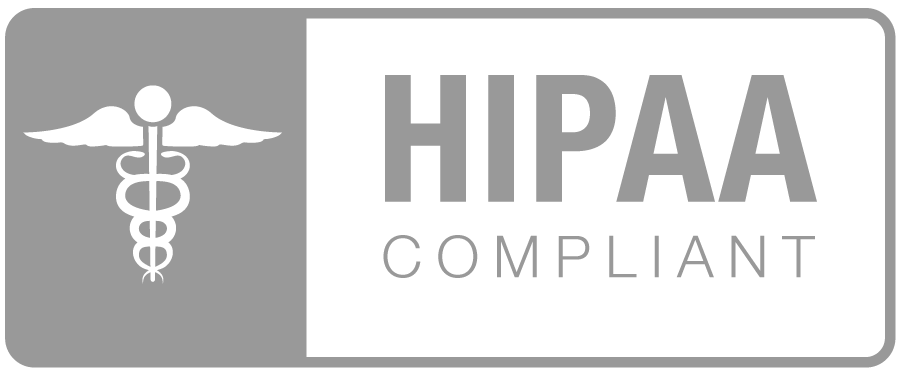As a new mother navigating the changing dynamics of my own tiny family, I am so much more aware of this day than in previous years. While my husband has handled much of our recent changes with amazing resiliency and support for myself and our daughter, the postpartum journey has not been particularly easy for either of us. But really, is the postpartum journey easy for anyone? It is difficult by nature: a turning-on-end of everything a person once knew about the rhythms of life. Though beautiful in its own way, the months after bringing home a child are by far one of the most stark transitions a person can experience. With this transition brings a host of new internal and external challenges and conflicts.
Through the experience of new parenthood, it has been obvious to me how much postpartum community support and attention is placed on mothers and babies, while fathers are also struggling to manage new mental and emotional tolls, re-evaluate their household roles, and support their partners who are experiencing massive hormone shifts and potentially problematic mental health concerns. Our empathetic fathers, bless their souls, are at particularly high risk for becoming silent sufferers of paternal postpartum depression or other postpartum disorders.
And yes, you read that right. Men can, and do, experience postpartum depression (PPD).
Even maternal PPD was not a formally recognized diagnosis until the early 90’s. Since then, the research has continued to develop in several directions on perinatal disorders, and with it a glaringly obvious recognition that men’s and fathers’ health needs more specific attention for the sake of the family at large.
With good reason, perinatal mental health disorders such as postpartum depression and anxiety are becoming more openly discussed. Women are screened multiple times throughout pregnancy and the postpartum experience for mental health concerns. Fathers, however, have been somewhat left in the dust in terms of research and treatment up until the past several years, despite there being an up to 25% prevalence of paternal PPD in new fathers [6].
Quick facts about paternal postpartum mental health:
– Paternal postpartum depression rates tend to be the highest 3-6 months after having a child [1].
– 70% of fathers noted increased stress in the first 12 months of having a child. 24% say that this increase was significant [6].
– Up to 25% of fathers will experience postpartum depression on some level. 18% will develop an anxiety disorder “during pregnancy or within the first year of parenthood” [6].
– Fathers’ bodies change during the postpartum period. In the first weeks after a child is born, a father’s testosterone is estimated to drop by 1/3 [2]. Some professionals speculate that this is to foster attachment and nurturing between father and child
Another thing that I have noticed thus far about parenthood is that Dads are an easy punchline, especially in the social media sphere. And while sometimes these jokes are warranted (Let me be honest, I have shared my fair number of laughs at my sweet husband’s expense), I cannot help but wonder what so much of the Dad-bashing is doing to the mental health of the world’s already-supportive and exhausted fathers. There are good dads out there, and they need a break from our constant criticism.
Anthony Nedelman, a psychologist, father, and writer who works specifically in men’s health, speaks bluntly about the mental and emotional weight placed on the modern father [3]. Men are taking on more non-traditional gender roles of household chores, childcare, and meal preparation in the modern age. Women, likewise, participate more actively in the workforce. And we love to see this! Studies even support the notion that fathers who are present and active in the rearing of their children are overall healthier and have increased longevity [2]. These changing roles in the home, however, place added pressure on mothers and fathers alike to fulfill entirely new areas of mental and emotional toll associated with parenting that previous generations were not navigating.
The Mental Health of a Father affects the entire family
We know that men in general are already less likely to seek therapy. Fathers whose partners are experiencing maternal PPD may feel increased pressure to support her emotionally and physically, provide for the household, and may even try to “fix” the new mother’s mental health. Their personal needs are easy to ignore or put on the back burner until the problem becomes more severe.
Paternal PPD impacts not only marital and partner relationships, but bonding and attachment with children in the home, and is a predictor of future “child psychopathology such as conduct and emotional disorders, hyperactivity, and anxiety and depression, as well as language delays” [1].
New Fathers are not the only Dads susceptible to mental health concerns
Fathers are not out of the woods after the risk of postpartum depression fades.
Nontraditional fathers in particular, such as stepfathers, are at higher risk for depression than biological parents [5]. As well, low-income fathers are at higher risk for depression [2].
Parenting brings a specific set of challenges that can affect a man differently throughout new developmental stages of his children, his marriage/relationship, or lifestyle changes. As an added complication, many men raised by fathers who were not active in their own childhood can struggle to feel confident in their role as parents.
The National Institute for Children’s Health Quality states that “Father involvement, then, has significant benefits for everyone involved. But too often, social expectations about masculinity and structural barriers make it difficult for fathers to get involved, especially during the early years of life” [4].
So if we understand the importance of a father’s connection with his children, that it is an overall benefit for the entire family, why aren’t we better supporting fathers in this important role of parenting? Thankfully, there are groups doing just that (see resource list below).
But for us mothers, and women, and the general public at large, I would like to call us to a new way of speaking about the good fathers in our life—the ones who show up in heroic ways to support, encourage, and intentionally weave their children’s wellbeing into the fabric of who they are.
Just like us, they are going to make mistakes—probably very consistent ones. They will probably set glasses directly beside an available coaster and throw dirty clothes on the floor beside a hamper. Instead of nagging about these little quirks, what if we instead became intentional about speaking positively about the actions we are grateful for?
As I type this, my husband just entered the room to ask if he could take our little one on a Costco trip so that I could complete this article. Now, I get to choose: At the end of today, do I want to remember this moment when I think about his role in our family, or do I want to remember the beard trimmings in the sink? It is so very easy to focus on what frustrates us instead of what we are grateful for.
For the sake of our relationships, our children, and the world at large, today I choose to focus on my husband’s active role in our family—his imperfect, beautiful role that is helping sketch out a healthy worldview for our child. His treatment of me and of her is already helping her create a sense of self-awareness and connectedness to her surroundings.
After all, my role is just as imperfect and beautiful as his. As the world chooses to support me and nurture me as a new mother, may I remember that the man beside me is carrying his own share of emotional and mental burdens for the sake of our family that is not always recognized.
Let’s raise a glass.
Cheers to the good dads out there today. We support you and we love you.
Resources for new and experienced fathers:
List of risk factors for paternal postpartum:
https://psychcentral.com/depression/stepmonster-8-reasons-why-stepmothers-are-prone-to-depression#risk-factors
Postpartum Support International:
– Phone Helpline, Dad support groups, discussion forums with professionals, local chapters of support
“Boot Camp” for New Dads:
https://www.bootcampfornewdads.org/
Center for Men’s Excellence:
Advice for New Dads – Videos and Interviews with Dr. Daniel Singley
A First Person Account of Paternal PPD:
https://www.heretohelp.bc.ca/visions/couples-vol10/i-wanted-to-cry
https://www.heretohelp.bc.ca/visions/couples-vol10/i-wanted-to-cry
https://www.heretohelp.bc.ca/visions/couples-vol10/i-wanted-to-cry
https://www.nichq.org/insight/promoting-fathers-mental-health-during-childrens-early-childhood
https://www.nami.org/Blogs/NAMI-Blog/December-2020/The-Mental-Health-of-the-Modern-Dad
https://ifstudies.org/blog/how-fatherhood-affects-men
https://www.psychologytoday.com/us/blog/sharpening-some-iron/202201/how-men-s-mental-health-impacts-their-families
Resources:
[1] Musser, A. K., Ahmed, A. H., Foli, K. J., & Coddington, J. A. (2013). Paternal postpartum depression: What health care providers should know. Journal of Pediatric Health Care, 27(6), 479–485. https://doi.org/10.1016/j.pedhc.2012.10.001
[2] National Fatherhood Initiative. (2015, October 15). How fatherhood affects men. Institute for Family Studies. Retrieved May 21, 2022, from https://ifstudies.org/blog/how-fatherhood-affects-men
[3] Nedelman, A. (2020, December 21). The mental health of the modern dad. NAMI. Retrieved May 23, 2022, from https://www.nami.org/Blogs/NAMI-Blog/December-2020/The-Mental-Health-of-the-Modern-Dad
[4] Promoting fathers’ mental health during children’s early childhood. NICHQ. (2021, June 16). Retrieved May 23, 2022, from https://www.nichq.org/insight/promoting-fathers-mental-health-during-childrens-early-childhood
[5] Vogel, K. (2022, March 31). Why stepparents are more prone to depression. Psych Central. Retrieved June 12, 2022, from https://psychcentral.com/depression/stepmonster-8-reasons-why-stepmothers-are-prone-to-depression#risk-factors
[6] What most of us don’t know about fatherhood and mental health – sondermind. SonderMind Therapy and Counseling. (2020, June 20). Retrieved June 12, 2022, from https://www.sondermind.com/resources/what-most-of-us-dont-know-about-fatherhood-and-mental-health





